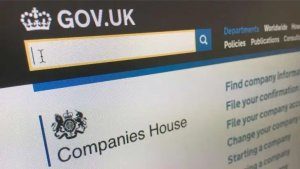- Corporate
- UK trusts, tax and estate planning
- Wills & Succession Planning

Longer Reads
Piggy Banks to Portfolios: can children hold shares in a company?
Associates Isobel Rudge and Luke Naylor discuss the benefits and issues around children owning company shares.
6 minute read
Published 19 June 2024
Key information
There are no statutory restrictions on shares in a private limited company incorporated in England and Wales being held by a minor. However, there may be restrictions in the company’s articles of association and/or shareholders’ agreement. You should therefore always check these documents before any shares are issued or transferred to a minor.
Subject to the company’s articles of association and/or shareholders’ agreement, a minor can obtain shares in a company via the usual two routes – either by subscribing for them in accordance with the company’s constitution, or through a share transfer from an existing shareholder.
What are the benefits of children owning shares in a company?
Children owning shares in a company is most common in the context of family-owned businesses.
Older generations (such as, grandparents) may wish to issue or transfer shares to minor family members as part of their inheritance and tax planning. This has the benefit of providing the minor child with assets that have the potential to increase in value over time, as well as removing that increased value from the donor’s estate at an earlier stage. Such planning allows all family members to participate in the future success of the company. Further, it provides an opportunity to introduce the child to investments and financial management, as well as teaching them to manage money and establish good financial practices from an early age.
The issue or transfer of shares to children can bring additional tax benefits to the family unit as a whole. A lower rate of tax might be applied to any dividend income generated from the shares held by the child, providing an opportunity to utilise the child’s annual tax free personal allowance of (currently) £12,750 and dividend allowance of (currently) £500 and benefit from their status as a basic rate tax payer. If the dividend income generated by the shares was kept within the child’s personal allowance, then this provides a regular income on which no tax would be payable.
If, in the future, the shares were sold as part of an exit strategy (for example, if the company was sold), the capital gains tax charged on any increase in value of those shares would similarly benefit from the child’s lower tax rates personal allowances thereby reducing the overall tax liability for the family.
A further benefit for individuals is that they can reduce the value of their estate by gifting the shares to a minor child, or simply not holding the newly issued or transferred shares themselves, thereby reducing the amount of inheritance tax payable (charged at a rate of 40%) on their later death. Where shares are gifted, there will be no inheritance tax payable on the transfer provided the gift is survived by seven years. Thus, allowing assets to be passed down a generation free from inheritance tax.
Where planning is undertaken at an early stage, gifting can occur across multiple tax years to make use of the donor’s capital gains tax allowance (£3,000 for 2024-25 tax year). This might be of particular interest where families are looking to transfer ownership over the course of time.
What are the issues with children owning shares in a company?
There are, however, several issues that should be considered before allowing children to own shares in a company:
- Repudiating ownership of shares
Although there is no general prohibition on minors owning shares in a company, under English law, contracts made with minors tend to be unenforceable due to the limitations on the minor’s capacity. A contract with a minor regarding the shares is therefore unlikely to be legally binding. As a result, it may be impractical to allow a minor to be shareholder, particularly if the shares are not fully paid.
Moreover, where a minor is registered as a member of a company, they will be entitled to repudiate their membership of the company while they are under the age of 18, as well as within a reasonable period of time after their 18th birthday. A reasonable period of time is not defined and will depend on the facts and circumstances of the case. Essentially, this means that the minor can reject ownership of the shares at any given time, and, crucially, any obligations placed on them as a result of owning the shares. Therefore, if the minor chooses to repudiate the contract of membership, they would be relieved of any future liabilities in relation to the shares, including any amounts then unpaid on the shares.
- Transferring and selling shares
Given the limitations on a minor’s capacity to enter into a legally binding contract, there can be difficulties with transferring or selling shares registered in the name of a child to another party. It is also not clear whether a minor can appoint their parent as their attorney to enter into an agreement transferring the shares on their behalf.
In the context of an exit, a potential future buyer of the company may well therefore be concerned by the prospect of acquiring shares registered in the name of a minor. That being said, deals can be structured so that the potential buyer gets comfort from the parents directly regarding any deficiencies in share title or commercial warranty coverage.
- Controlling the company
Although they may be a minor, a child who is a member of a company may be entitled to have a say in certain matters of the company, and their influence can vary dramatically depending on the number of shares that they own. For example, the balance of power between the shareholders may be altered if the minor is given too many voting shares which leaves them being able to outvote other shareholders. This may impact the operations of the company as the minor is unlikely to have sufficient experience to make informed decisions about the running of the company.
If the minor holds more than 25% of the shares in the company, they will also need to be recorded as a person of significant control in the company’ statutory books, as well as at Companies House.
The directors of the company should also consider their fiduciary duties to the company when issuing or transferring shares to a minor. It may well not be in the best interests of the company to give shares to the minor, and so they could be liable for breaching these duties. They may also be liable for any losses to the company as a result of the shares being given to the minor.
- Parents
Although a minor child holding shares can reduce a family’s overall tax liability, care should be taken when a parent gifts the shares. Any income over £100 paid to, or for the benefit of, a minor child that is generated from capital provided by the parent will be taxed on the parent. Therefore, shares transferred to a minor child from their parent will not benefit from the child’s personal allowances and lower tax rates, but instead will be taxed at their parent’s rate (potentially on the higher or additional rates).
- Automatic right to the income
If the shares held by the minor child are income generating, then thought should be given as to how the funds are to be held or applied for the child. Further, parents should be aware that when the child turns 18 then they will be absolutely entitled to the income. You may wish to review the arrangement at this point.
- Refusal to register
A more fundamental problem is that companies can refuse to register share transfers to minors.
What are the alternatives to children directly owning shares in a company?
Allowing minors to hold shares in a company can present challenges for families and their business, and you should seek detailed advice before entering into such arrangements. There are, however, possible solutions which can reduce the risks highlighted above:
- Bare trust
A common solution is an alternative share ownership structure in which an adult (typically the child’s parent) is registered as the legal owner of the shares and holds the shares on behalf of the child, as nominee shareholder. Under this arrangement, the adult will be the registered legal owner of the shares and will be able to:
-
- Exercise any voting rights attaching to the shares.
- Give receipt of the payment of any dividends on behalf of the child.
- Sign a stock transfer form transferring the shares.
The beneficial interest in the shares will still reside with the child, however, and so they will have the absolute right to the shares, and any dividends generated from them.
- Discretionary trust
Another option is to hold the shares within a discretionary trust. A discretionary trust provides family members with security knowing that the funds will be applied in a sensible manner and not at the whim of the child. Trustees retain the discretion to determine when a distribution should be made to the child and have the power to accumulate the income until an appropriate time. The donor can specify their wishes and intentions for the shares – for example, to help with the education of the child or to buy a property . Inheritance tax may be charged on the transfer into trust and for the period in which the trust continues to hold such shares, subject to any available tax reliefs. The most notable of these reliefs is Business Relief, if the company is a trading business.
- Consider issuing different types of shares to minors
Alternatively, the company may wish to issue a separate class of non-voting shares to be held by the minor children within the family. The rights attached to such shares can determine the level of income generation and dividend rights, as well as protecting the company from being held hostage to the votes of the minor child or their proxy. It further allows the child to have some involvement within the family company and gain greater exposure as they grow up, without the pressure of formal voting provisions at too young an age.
If business owners are not comfortable transferring shares to their minor children but still wish to leave their family company for future generations, then they should consider putting in place a tax efficient Will. Such estate planning can ensure the family business passes into the hands of future generations in an efficient manner at a time which is right for all generations. Again, Business Relief from inheritance tax may apply, and there is an uplift in value on death for capital gains tax purposes. Effective estate planning can adapt to both family circumstances and the cycle of the company whilst still achieving the succession of the business to future generations.
Conclusion
Ultimately, providing a child with direct ownership of shares in a company can offer tangible benefits, particularly in the context of a family-owned business.
There are, however, a number of considerations that the company and its directors should weigh up before doing so. Particularly in the case of larger private companies, the child owning the shares under some form of trust arrangement may be more suitable.
If you would like to discuss the future planning of your company, we regularly advise families on succession planning that adapts to the needs of both your family and your company.
Related content
Longer Reads
Piggy Banks to Portfolios: can children hold shares in a company?
Associates Isobel Rudge and Luke Naylor discuss the benefits and issues around children owning company shares.
Published 19 June 2024
Associated sectors / services
Authors
There are no statutory restrictions on shares in a private limited company incorporated in England and Wales being held by a minor. However, there may be restrictions in the company’s articles of association and/or shareholders’ agreement. You should therefore always check these documents before any shares are issued or transferred to a minor.
Subject to the company’s articles of association and/or shareholders’ agreement, a minor can obtain shares in a company via the usual two routes – either by subscribing for them in accordance with the company’s constitution, or through a share transfer from an existing shareholder.
What are the benefits of children owning shares in a company?
Children owning shares in a company is most common in the context of family-owned businesses.
Older generations (such as, grandparents) may wish to issue or transfer shares to minor family members as part of their inheritance and tax planning. This has the benefit of providing the minor child with assets that have the potential to increase in value over time, as well as removing that increased value from the donor’s estate at an earlier stage. Such planning allows all family members to participate in the future success of the company. Further, it provides an opportunity to introduce the child to investments and financial management, as well as teaching them to manage money and establish good financial practices from an early age.
The issue or transfer of shares to children can bring additional tax benefits to the family unit as a whole. A lower rate of tax might be applied to any dividend income generated from the shares held by the child, providing an opportunity to utilise the child’s annual tax free personal allowance of (currently) £12,750 and dividend allowance of (currently) £500 and benefit from their status as a basic rate tax payer. If the dividend income generated by the shares was kept within the child’s personal allowance, then this provides a regular income on which no tax would be payable.
If, in the future, the shares were sold as part of an exit strategy (for example, if the company was sold), the capital gains tax charged on any increase in value of those shares would similarly benefit from the child’s lower tax rates personal allowances thereby reducing the overall tax liability for the family.
A further benefit for individuals is that they can reduce the value of their estate by gifting the shares to a minor child, or simply not holding the newly issued or transferred shares themselves, thereby reducing the amount of inheritance tax payable (charged at a rate of 40%) on their later death. Where shares are gifted, there will be no inheritance tax payable on the transfer provided the gift is survived by seven years. Thus, allowing assets to be passed down a generation free from inheritance tax.
Where planning is undertaken at an early stage, gifting can occur across multiple tax years to make use of the donor’s capital gains tax allowance (£3,000 for 2024-25 tax year). This might be of particular interest where families are looking to transfer ownership over the course of time.
What are the issues with children owning shares in a company?
There are, however, several issues that should be considered before allowing children to own shares in a company:
- Repudiating ownership of shares
Although there is no general prohibition on minors owning shares in a company, under English law, contracts made with minors tend to be unenforceable due to the limitations on the minor’s capacity. A contract with a minor regarding the shares is therefore unlikely to be legally binding. As a result, it may be impractical to allow a minor to be shareholder, particularly if the shares are not fully paid.
Moreover, where a minor is registered as a member of a company, they will be entitled to repudiate their membership of the company while they are under the age of 18, as well as within a reasonable period of time after their 18th birthday. A reasonable period of time is not defined and will depend on the facts and circumstances of the case. Essentially, this means that the minor can reject ownership of the shares at any given time, and, crucially, any obligations placed on them as a result of owning the shares. Therefore, if the minor chooses to repudiate the contract of membership, they would be relieved of any future liabilities in relation to the shares, including any amounts then unpaid on the shares.
- Transferring and selling shares
Given the limitations on a minor’s capacity to enter into a legally binding contract, there can be difficulties with transferring or selling shares registered in the name of a child to another party. It is also not clear whether a minor can appoint their parent as their attorney to enter into an agreement transferring the shares on their behalf.
In the context of an exit, a potential future buyer of the company may well therefore be concerned by the prospect of acquiring shares registered in the name of a minor. That being said, deals can be structured so that the potential buyer gets comfort from the parents directly regarding any deficiencies in share title or commercial warranty coverage.
- Controlling the company
Although they may be a minor, a child who is a member of a company may be entitled to have a say in certain matters of the company, and their influence can vary dramatically depending on the number of shares that they own. For example, the balance of power between the shareholders may be altered if the minor is given too many voting shares which leaves them being able to outvote other shareholders. This may impact the operations of the company as the minor is unlikely to have sufficient experience to make informed decisions about the running of the company.
If the minor holds more than 25% of the shares in the company, they will also need to be recorded as a person of significant control in the company’ statutory books, as well as at Companies House.
The directors of the company should also consider their fiduciary duties to the company when issuing or transferring shares to a minor. It may well not be in the best interests of the company to give shares to the minor, and so they could be liable for breaching these duties. They may also be liable for any losses to the company as a result of the shares being given to the minor.
- Parents
Although a minor child holding shares can reduce a family’s overall tax liability, care should be taken when a parent gifts the shares. Any income over £100 paid to, or for the benefit of, a minor child that is generated from capital provided by the parent will be taxed on the parent. Therefore, shares transferred to a minor child from their parent will not benefit from the child’s personal allowances and lower tax rates, but instead will be taxed at their parent’s rate (potentially on the higher or additional rates).
- Automatic right to the income
If the shares held by the minor child are income generating, then thought should be given as to how the funds are to be held or applied for the child. Further, parents should be aware that when the child turns 18 then they will be absolutely entitled to the income. You may wish to review the arrangement at this point.
- Refusal to register
A more fundamental problem is that companies can refuse to register share transfers to minors.
What are the alternatives to children directly owning shares in a company?
Allowing minors to hold shares in a company can present challenges for families and their business, and you should seek detailed advice before entering into such arrangements. There are, however, possible solutions which can reduce the risks highlighted above:
- Bare trust
A common solution is an alternative share ownership structure in which an adult (typically the child’s parent) is registered as the legal owner of the shares and holds the shares on behalf of the child, as nominee shareholder. Under this arrangement, the adult will be the registered legal owner of the shares and will be able to:
-
- Exercise any voting rights attaching to the shares.
- Give receipt of the payment of any dividends on behalf of the child.
- Sign a stock transfer form transferring the shares.
The beneficial interest in the shares will still reside with the child, however, and so they will have the absolute right to the shares, and any dividends generated from them.
- Discretionary trust
Another option is to hold the shares within a discretionary trust. A discretionary trust provides family members with security knowing that the funds will be applied in a sensible manner and not at the whim of the child. Trustees retain the discretion to determine when a distribution should be made to the child and have the power to accumulate the income until an appropriate time. The donor can specify their wishes and intentions for the shares – for example, to help with the education of the child or to buy a property . Inheritance tax may be charged on the transfer into trust and for the period in which the trust continues to hold such shares, subject to any available tax reliefs. The most notable of these reliefs is Business Relief, if the company is a trading business.
- Consider issuing different types of shares to minors
Alternatively, the company may wish to issue a separate class of non-voting shares to be held by the minor children within the family. The rights attached to such shares can determine the level of income generation and dividend rights, as well as protecting the company from being held hostage to the votes of the minor child or their proxy. It further allows the child to have some involvement within the family company and gain greater exposure as they grow up, without the pressure of formal voting provisions at too young an age.
If business owners are not comfortable transferring shares to their minor children but still wish to leave their family company for future generations, then they should consider putting in place a tax efficient Will. Such estate planning can ensure the family business passes into the hands of future generations in an efficient manner at a time which is right for all generations. Again, Business Relief from inheritance tax may apply, and there is an uplift in value on death for capital gains tax purposes. Effective estate planning can adapt to both family circumstances and the cycle of the company whilst still achieving the succession of the business to future generations.
Conclusion
Ultimately, providing a child with direct ownership of shares in a company can offer tangible benefits, particularly in the context of a family-owned business.
There are, however, a number of considerations that the company and its directors should weigh up before doing so. Particularly in the case of larger private companies, the child owning the shares under some form of trust arrangement may be more suitable.
If you would like to discuss the future planning of your company, we regularly advise families on succession planning that adapts to the needs of both your family and your company.
Associated sectors / services
- Corporate
- UK trusts, tax and estate planning
- Wills & Succession Planning
Authors
Need some more information? Make an enquiry below.
Subscribe
Please add your details and your areas of interest below
Article contributors
Luke
NaylorAssociate
Specialising in Commercial, Corporate, Financial regulatory, Financial Services and Private equityIsobel
RudgeAssociate
Specialising in UK trusts, tax & estate planning
Enjoy reading our articles? why not subscribe to notifications so you’ll never miss one?
Subscribe to our articlesMessage us on WhatsApp (calling not available)
Please note that Collyer Bristow provides this service during office hours for general information and enquiries only and that no legal or other professional advice will be provided over the WhatsApp platform. Please also note that if you choose to use this platform your personal data is likely to be processed outside the UK and EEA, including in the US. Appropriate legal or other professional opinion should be taken before taking or omitting to take any action in respect of any specific problem. Collyer Bristow LLP accepts no liability for any loss or damage which may arise from reliance on information provided. All information will be deleted immediately upon completion of a conversation.
Close





















































































